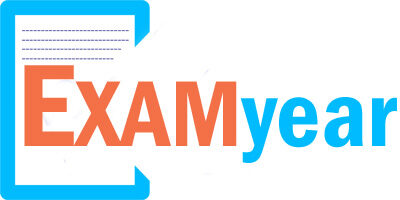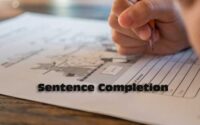Cloze Test for SSC CHSL
Interested users can download the Cloze Test for SSC CHSL Previous Papers from the links enclosed below. Download the Last 5 Years SSC Combined Higher Secondary Level Exam Solved Question Papers on Cloze Test along with the Answers of each question.

These SSC Combined Higher Secondary Level Cloze Test Model Question Papers may vary from the Actual paper. Use the SSC Cloze Test Previous Papers as a reference for the exam preparation. Check the SSC CHSL Cloze Test Previous Papers from this page.
Checking all the Staff Selection Commission CHSL Cloze Test Model Papers and Sample Papers!! Later, check the Latest SSC Cloze Test Question Pattern. The SSC Combined Higher Secondary Level Cloze Test Previous Papers pdf Free Download available here.
Hence, candidates who are going to write Combined Higher Secondary Level exam may download Staff Selection Commission CHSL Cloze Test Model Papers with Answers for free of cost. Aspirants can also get Cloze Test for SSC CHSL Question Papers. Download the Cloze Test for SSC CHSL Previous Ten Years Papers within few seconds for free of cost.
Cloze Test pdf for SSC CHSL
Directions: In the following passages there are blanks, each of which has been numbered. These numbers are printed below the passage and against each, five words are suggested, one of which fits the blank appropriately. Find out the appropriate words.
Cloze Test Practice Set |
Exercise – 1
The tea plant, a native of Southern China, was known ———1——– very early times of Chinese botany and medicine. It is ———-2——— in the classics ———-3——— the various names of Tou, Tseh, Chung, Kha and Ming and was ————-4———- praised for possessing the virtues of ————5——– fatigue, delighting the soul, strengthening the will and repairing the eyesight. It was not only administered as an internal dose, but often ————6——— externally in the form of paste to ———–7——– rheumatic pains. The Taoists claimed it ——-8——– an important ———–9—— of the elixir of immortality. The Buddhists used it extensively to prevent drowsiness during ——–10—— long hours of meditation.
1. 1) to 2) after 3) from 4) beyond 5) behind
2. 1) taken 2) resorted 3) awarded 4) alluded 5) introduced
3. 1) under 2) between 3) among 4) besides 5) like
4. 1) rarely 2) loosely 3) under 4) severely 5) highly
5. 1) absorbing 2) relieving 3) avoiding 4) resolving 5) recognizing
6. 1) inserted 2) developed 3) conceived 4) control 5) applied
7. 1) recuperate 2) alleviate 3) conceal 4) indicate 5) slow
8. 1) to 2) also 3) although 4) as 5) hardly
9. 1) ingredient 2) aspect 3) offshoot 4) outcome 5) discovery
10. 1) that 2) these 3) their 4) our 5) remote
Exercise -2
The social ———-1———- of the Web lifestyle and work style are enormous. A lot of people ——2——— that computers and the Internet will depersonalize experience, creating a world that is less warm. But these are unfounded as we know that some people were ————-3———– afraid that the telephone would reduce face-to-face contact and will ———–4——— society to fall apart. But the ———5———– actually came true. Just as phone and e-mail have increased contact between people living in different communities and between people on the go, the PC and the Internet give us ———–6———– way to communicate. They do not take any away. In reality, the ability to use the Internet to redefine ———–7————– in our communities is strengthening personal and cultural ———-8———-. The Web lifestyle is about broadening ———-9———-, not narrowing them. Community building is going to be one of the biggest growth areas on the Web. It dramatically increases the number of communities you can bond to because of its ability to ————-10——– groups of like-minded people independent of geography or time zones.
1. 1) groups 2) needs 3) factor 4) teaching 5) implications
2. 1) accept 2) dare 3) fear 4) propose 5) reject
3. 1) strongly 2) initially 3) always 4) never 5) possibly
4. 1) let 2) decay 3) develop 4) cause 5) destroy
5. 1) opposite 2) found 3) finding 4) different 5) negative
6. 1) cheaper 2) economical 3) another 4) second 5) many
7. 1) group 2) ethics 3) culture 4) bonds 5) boundaries
8. 1) distances 2) connections 3) differences 4) implications 5) suggestions
9. 1) horizons 2) values 3) nations 4) means 5) status
10. 1) reduce 2) focus 3) prepare 4) connect 5) develop
Exercise – 3
Trust is the basis of human relationship. As trust between people grows, ———-1———– change and interpersonal dynamics are transformed. Diverse skills and abilities become ————2———- and appreciated as strengths. People begin to ——-3———- one another’s attitudes and feelings. They learn to be ———-4———- instead of playing roles. As trust grows the ——–5——– that prevent ———-6———— and openness lessen. People become more expressive, impulsive, frank and ———–7———-. Their communication is efficient and clear. They risk ——–8———- and confrontation, opening the doors to deeper communication, involvement and commitment. Congestion and ——-9———- lessen. The flow of data is open and ————10————.
1. 1) motivations 2) behaviours 3) patterns 4) aspirations 5) commitments
2. 1) obvious 2) necessary 3) essential 4) recognised 5) prominent
3. 1) accept 2) participate 3) pronounce 4) inculcate 5) relate
4. 1) advocates 2) possessed 3) exponents 4) indifferent 5) themselves
5. 1) seriousness 2) beliefs 3) barriers 4) masks 5) chains
6. 1) snobbery 2) egoism 3) brashness 4) boasting 5) candour
7. 1) projective 2) spontaneous 3) pious 4) cavaliers 5) callous
8. 1) conflict 2) persuasiveness 3) dedication 4) propensity 5) jealousy
9. 1) pervasiveness 2) boundaries 3) sluggishness 4) blocking 5) enthusiasm
10. 1) unanimous 2) uncritical 3) uninhabited 4) uncanny 5) unusual
Exercise – 4
Economic backwardness of a region is ———–1————- by the co-existence of unutilized or underutilized —————-2———– on the one hand, and ———3———– natural resources, on the other. Economic development essentially means a process of ————4———– change whereby the real per capita income of an economy ————5————- over a period of time. Then, a simple but meaningful question arises: what causes economic development? Or what makes a country developed? This question has absorbed the ——–6———— of scholars of socio-economic change for decades. Going through the ———–7————- history of developed countries like America, Russia and Japan, man is essentially found as ————8———– in the process of economic development. Japan, whose economy was ———–9———— damaged from the ravages of the Second World War, is the clearest example of our time to ———-10———- kingpin role in economic development .
1. 1) developed 2) cured 3) improved 4) enhanced 5) characterized
2. 1) sources 2) finances 3) funds 4) manpower 5) industries
3. 1) exhaustive 2) unexploited 3) abundant 4) indefinite 5) unreliable
4. 1) upward 2) drastic 3) negligible 4) incredible 5) sudden
5. 1) diminishes 2) degenerates 3) increases 4) succumbs 5) stabilizes
6. 1) plans 2) attempts 3) attention 4) resources 5) strategy
7. 1) existing 2) glorious 3) ancient 4) economic 5) discouraging
8. 1) pivotal 2) neutral 3) insignificant 4) enchanted 5) vicious
9. 1) increasingly 2) always 3) gradually 4) deliberately 5) badly
10. 1) enlighten 2) validate 3) negate 4) underestimate 5) belittle
Exercise – 5
In the past, it was thought learning knowledge took place in school and for some also in further education. Then it was a matter of ————-1——— practical skills at work at the beginning of a career, and with a bit of luck, that ———–2——— it. Now things have changed. Global competition is ———3——— the shelf life of products and the knowledge and skills that ———4———- behind them. The pace of change can be ———5——–. Knowledge that was leading edge at one minute can become ———6———- the next. Therefore, it is the ——–7———- rather than knowledge that is the key. Successful organizations have to learn, adapt and change continuously as do the ——–8——— within them. This is ———9——– in the rapid growth of knowledge workers. It is ————10——— all levels of organisations.
1. 1) fostering 2) projecting 3) acquiring 4) manipulating 5) culminating
2. 1) for 2) was 3) from 4) with 5) may
3. 1) replacing 2) retailing 3) rotating 4) re-regulating 5) reducing
4. 1) lie 2) profess 3) exhibit 4) manifest 5) express
5. 1) analytical 2) absorbing 3) interesting 4) frightening 5) valuable
6. 1) critical 2) obsolete 3) modem 4) devastating 5) lamentable
7. 1) durability 2) reactivity 3) activity 4) pro-activity 5) capacity
8. 1) systems 2) managements 3) processes 4) individuals 5) units
9. 1) echoed 2) supported 3) adjusted 4) provided 5) developed
10. 1) directing 2) providing 3) affecting 4) questioning 5) projecting


